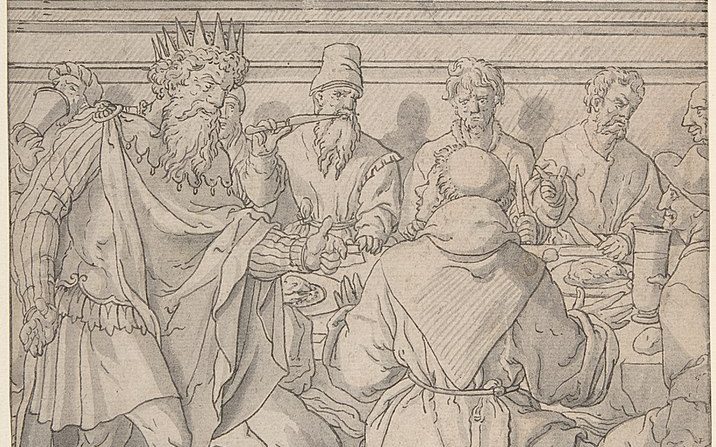Is. 25:6–10 / Ps. 23:1–6 / Phil. 4:12–14, 19–20 / Mt. 22:1–14
Our Lord’s parable in this week’s Gospel is again a fairly straightforward outline of salvation history.
God is the king (see Matthew 5:35), Jesus the bridegroom (see Matthew 9:15), the feast is the salvation and eternal life that Isaiah prophesies in Sunday’s First Reading. The Israelites are those first invited to the feast by God’s servants, the prophets (see Isaiah 7:25). For refusing repeated invitations and even killing his prophets, Israel has been punished, its city conquered by foreign armies.
Now, Jesus makes clear, God was sending new servants, his apostles, to call not only Israelites, but all people — good and bad alike — to the feast of his kingdom. This is an image of the Church, which Jesus elsewhere compares to a field sown with both wheat and weeds, and a fishing net that catches good fish and bad (see Matthew 13:24–43, 47–50).
We have all been called to this great feast of love in the Church where, as Isaiah foretold, the veil that once separated the nations from the covenants of Israel has been destroyed, where the dividing wall of enmity has been torn down by the blood of Christ (see Ephesians 2:11–14).
As we sing in the Psalm this week, the Lord has led us to this feast, refreshing our souls in the waters of baptism, spreading the table before us in the Eucharist. As Paul tells us in the Epistle, in the glorious riches of Christ, we will find supplied whatever we need.
And in the rich food of his body, and the choice wine of his blood, we have a foretaste of the eternal banquet in the heavenly Jerusalem, when God will destroy death forever (see Hebrews 12:22–24).
But are we dressed for the feast, clothed in the garment of righteousness (see Revelation 19:8)? Not all who have been called will be chosen for eternal life, Jesus warns. Let us be sure that we’re living in a manner worthy of the invitation we’ve received (see Ephesians 4:1).

